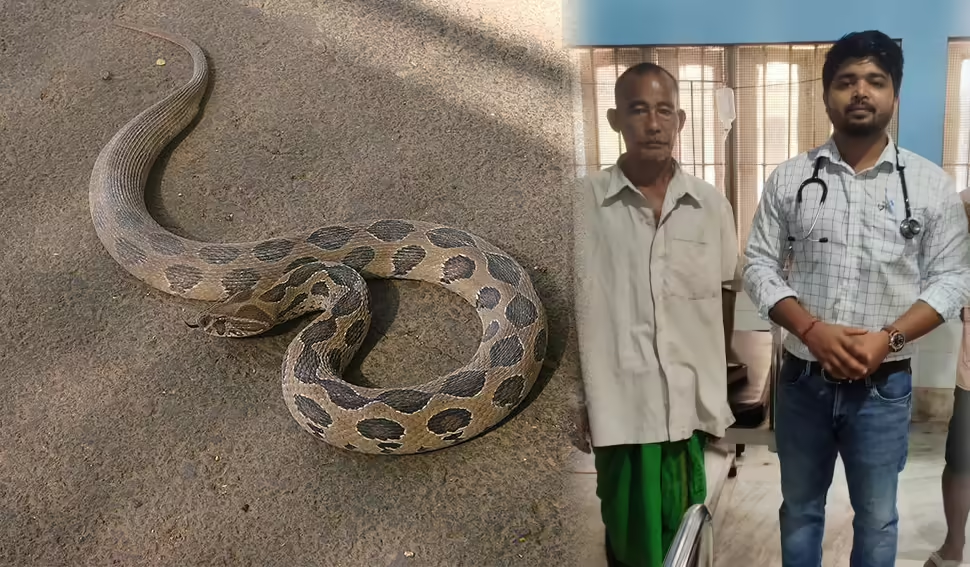First Russell’s viper envenomation successful management in a govt hospital in Kokrajhar

In a major achievement for government health care in Assam, Dr Bijay Sarkar of Kokrajhar Civil Hospital in Assam has achieved a significant milestone by successfully treating a critical case of Russell’s Viper envenomation which marks the first documented successful treatment of such a case at a government facility in the state.
Russell’s Viper is one of the deadliest venomous snakes, and envenomation cases are often life-threatening due to the severe complications that can arise, including coagulopathy, kidney failure, and shock.
The patient has been identified as Pandu Basumatary (50) from Khungbu Burau Gaon under Runikhata police station in Chirang district of Bodoland Territorial Region (BTR)
Late on the night of August 17, Dr Sarkar, who was on night duty, received an urgent call regarding a patient bitten by a snake around 7:30 pm. The patient, who had delayed seeking medical attention, was experiencing severe pain, swelling at the bite site, and spontaneous bleeding from the gums symptoms indicative of a venomous bite.
Based on the geographical location and symptoms, Dr Sarkar provisionally diagnosed the case as a Russell’s Viper (RV) envenomation.
“Patient and family members identified the RV in the photo. We advised ASV 20 vials stat. Blood was taken for 20 WBCT, but we advised not to wait for the report (the latter blood was not clotted). Immediately 20 vials of ASV infused and advised 20 WBCT at 8 hours,” Dr Sarka said.
His spontaneous bleeding stopped. After eight hours, blood was clotted. If it did not clot, the plan was to infuse another 10 vials of ASV and FFP.
“First hurdle overcome. The next hurdle was the kidney. RV venom causes renal toxicity. Advised for good hydration and Kidney function test 8hrly.If there is increase in creatinine 0.3mg per day, patient may need refer to Nephrologist. I closely monitored the case with good hydration for the patient,” Dr Sarkar also said.
This successful treatment stands out as a significant achievement, especially considering that in similar cases, patients treated at private hospitals in Lower Assam experienced kidney injuries despite receiving an initial dose of 10 vials of ASV. In contrast, the administration of 20 vials of ASV in this case likely prevented such complications.
Dr Sarkar’s decision to take on this challenging case, rather than opting for a referral, underscores his commitment and expertise. His actions not only saved a life but also set a precedent for managing snakebite cases in government hospitals across Assam.
“We have 4 documented RV cases. Three were from Bongaigaon, treated in Lower Assam Hospital (private) and recovered but had kidney injury. They used 10 vials of ASV as the starting dose. One was from Tezpur who died treated in Mission hospital (Charity Private), where 10 vials of ASV was used as the first dose,” he added.

Leave a Reply